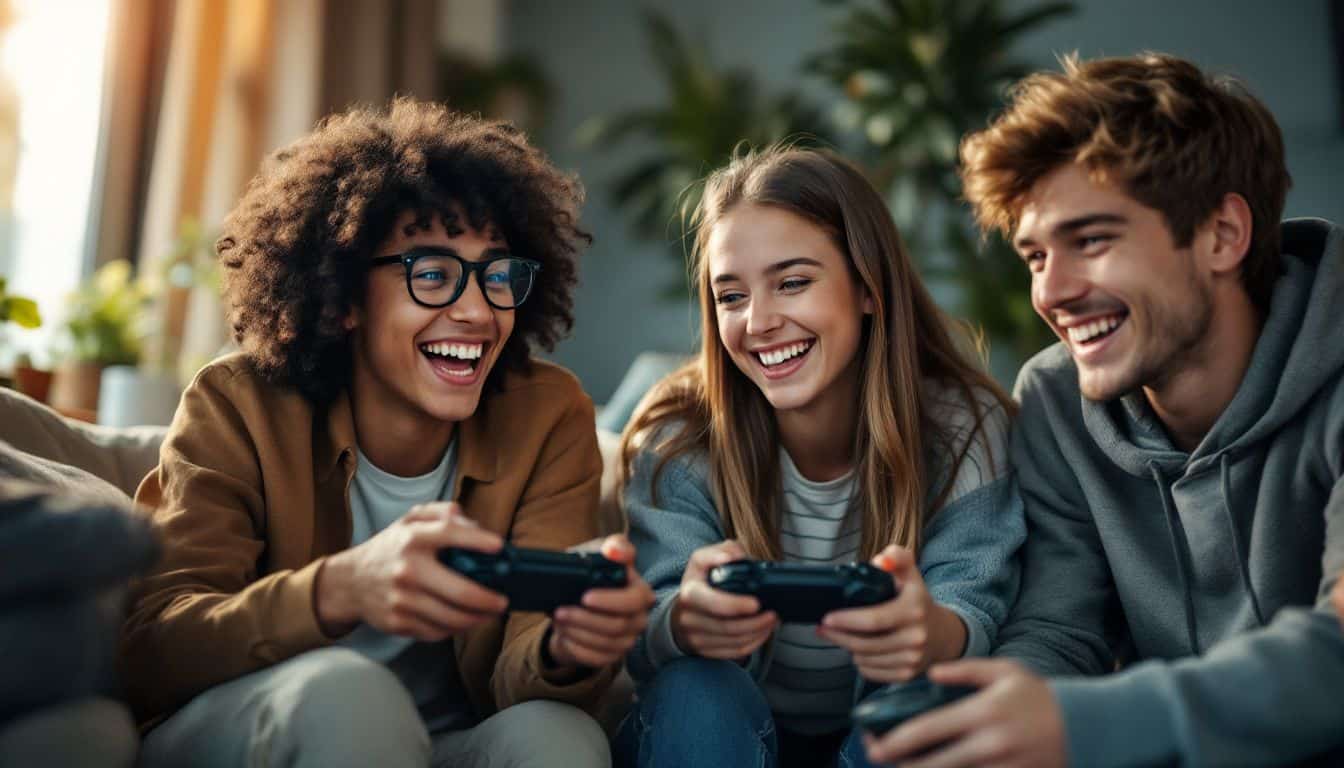Parents and teachers often worry that gaming wastes time and hurts brain growth. Yet science tells a different story about how gaming is good for you. Recent studies show video games boost memory, problem-solving skills, and even mental health.
Ready to discover 15 ways gaming makes your life better? Grab your controller and level up your knowledge!
Key Takeaways
Gaming boosts brain power by improving memory, focus, and problem-solving skills. Studies show gamers process visual information 20% faster than non-gamers and make better choices under pressure.
Surgeons who play video games make 37% fewer mistakes during operations, proving gaming enhances hand-eye coordination and motor skills. Motion-based games like Ring Fit Adventure turn living rooms into active spaces.
Video games help mental health by reducing stress and anxiety through dopamine release. Players build emotional resilience and coping skills while facing virtual challenges without real-world risks.
Online gaming creates meaningful social connections across cultures. Players learn teamwork, clear communication, and collaboration skills that transfer to real-world settings.
Educational games improve test scores by 12% compared to traditional learning methods. Major companies like Google and Facebook now value gaming experience when hiring, as gamers process information 12% faster than non-gamers.
Table of Contents
Cognitive Benefits of Gaming

Gaming sharpens your brain like a sword in battle. Research shows that gamers process information faster and make split-second choices better than non-gamers.
Improved problem-solving skills
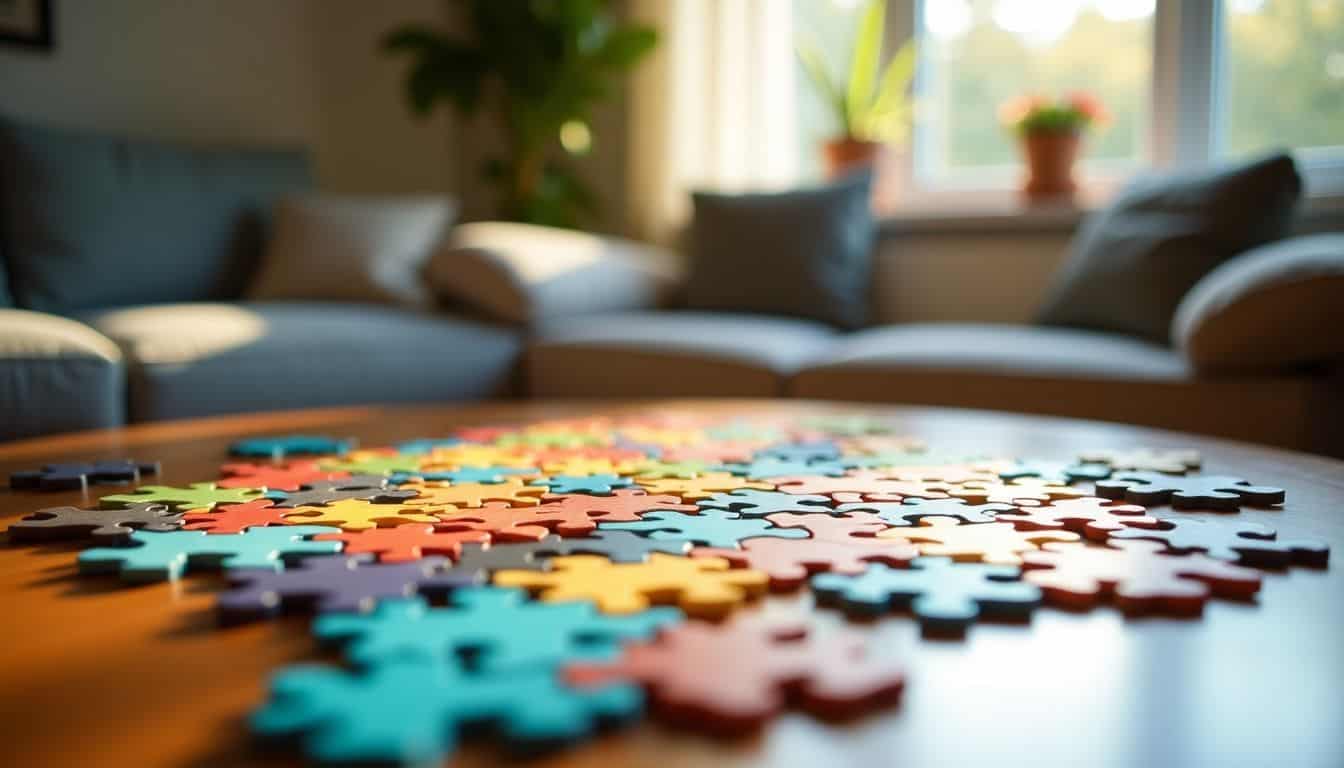
Playing puzzle games like Tetris boosts your brain power in cool ways. Research shows these games make you better at solving tricky problems. Your mind learns to spot patterns faster and figure out solutions on the fly.
I noticed this myself while playing RPGs – each quest teaches you to think outside the box.
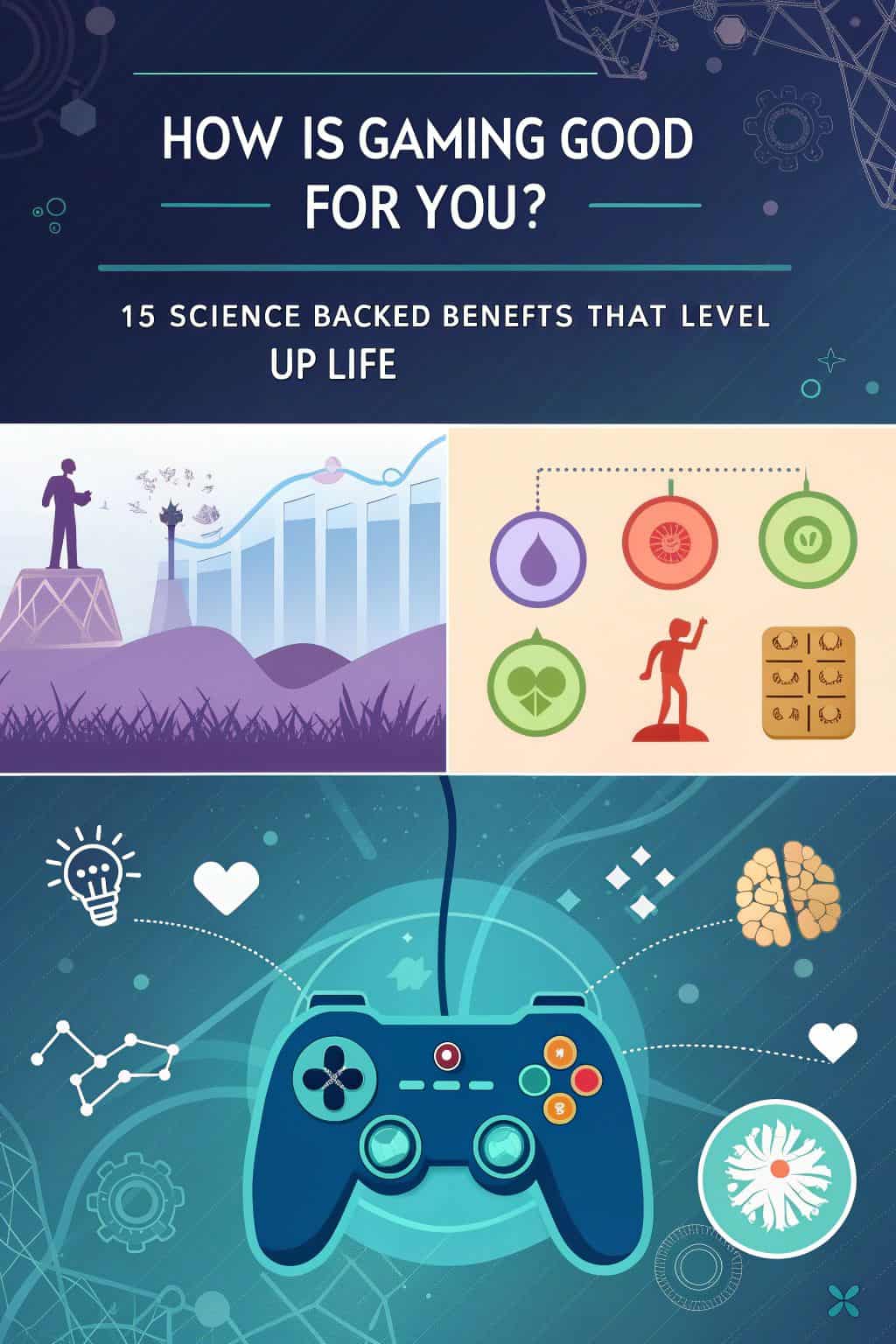
Your prefrontal cortex gets a real workout through video games. This brain region handles complex thinking and problem-solving tasks. Studies prove that gamers excel at task switching and finding creative solutions.
The best part? You’re building these skills while having fun with pixels and controllers. No boring brain training needed!
Enhanced memory and focus
 Video games improve your brain’s gray matter significantly. Research shows that people who play games demonstrate enhanced memory and concentration compared to those who don’t play.
Video games improve your brain’s gray matter significantly. Research shows that people who play games demonstrate enhanced memory and concentration compared to those who don’t play.
The brain forms enhanced neural pathways for information retention while completing missions and learning game strategies. I observed this personally during extended gaming sessions – my capacity to remember quest specifics and complex game layouts improved steadily.
Gaming exercises your brain similar to physical training. Studies confirm that video games expand brain regions connected to movement, memory, and emotions. Regular information recall in games strengthens working memory.
Your brain maintains alertness through quick decisions and reactions required during gameplay. This cognitive exercise improves concentration for non-gaming activities. My friends comment on my intense focus during raid battles, and these abilities help me concentrate in work meetings.
Boosted decision-making abilities
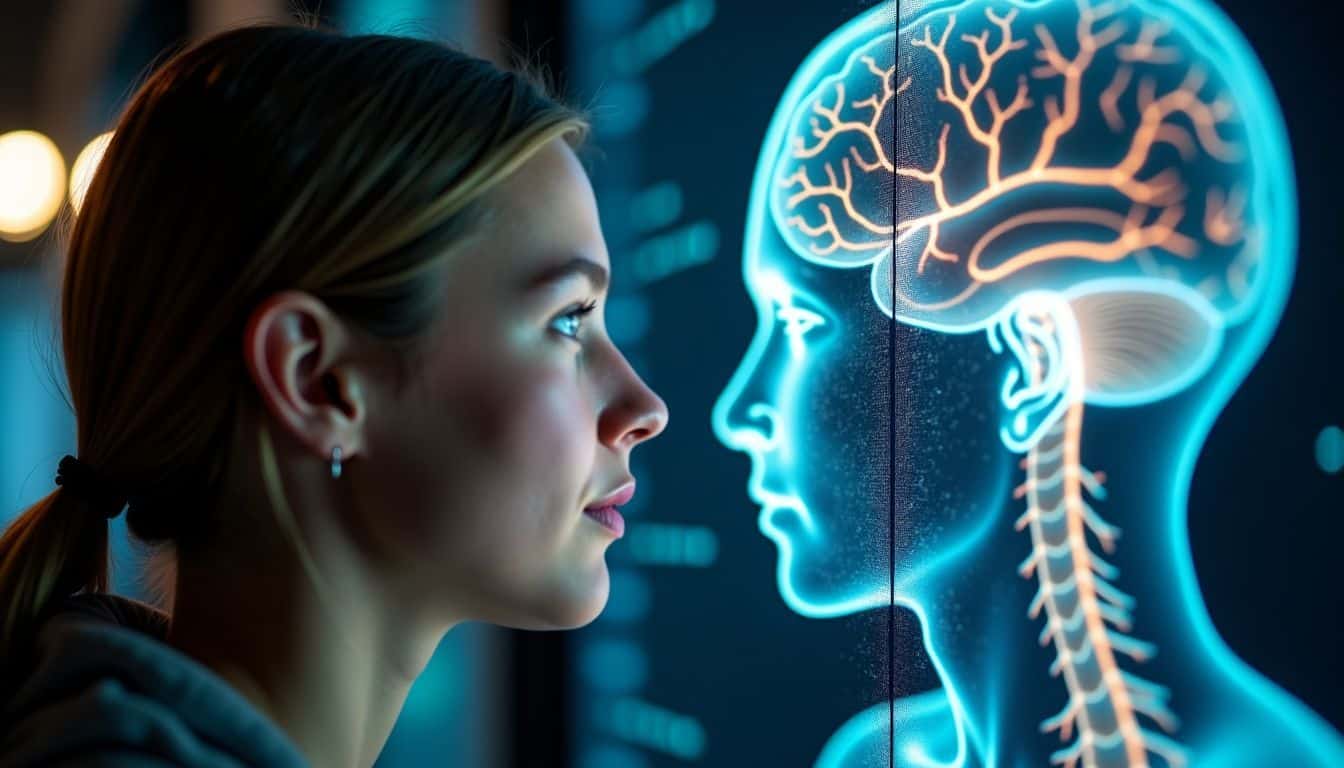
Better memory and focus naturally lead to smarter choices in games and life. I’ve seen this firsthand as a gamer – my brain gets faster at picking the right moves. Even playing simple real money slots can improve decision-making abilities.
Strategy games push players to make quick choices as situations change. The cool part? These skills stick around long after the game ends.
Gaming actually grows gray matter in your brain – the stuff that helps you make good decisions. Role-playing games train your brain through quests and puzzles that need fast thinking.
Players must solve problems creatively while exploring virtual worlds. Studies show gamers process information faster and pick better options under pressure. These brain boosts help in school, work, and daily life.
Physical Benefits of Gaming
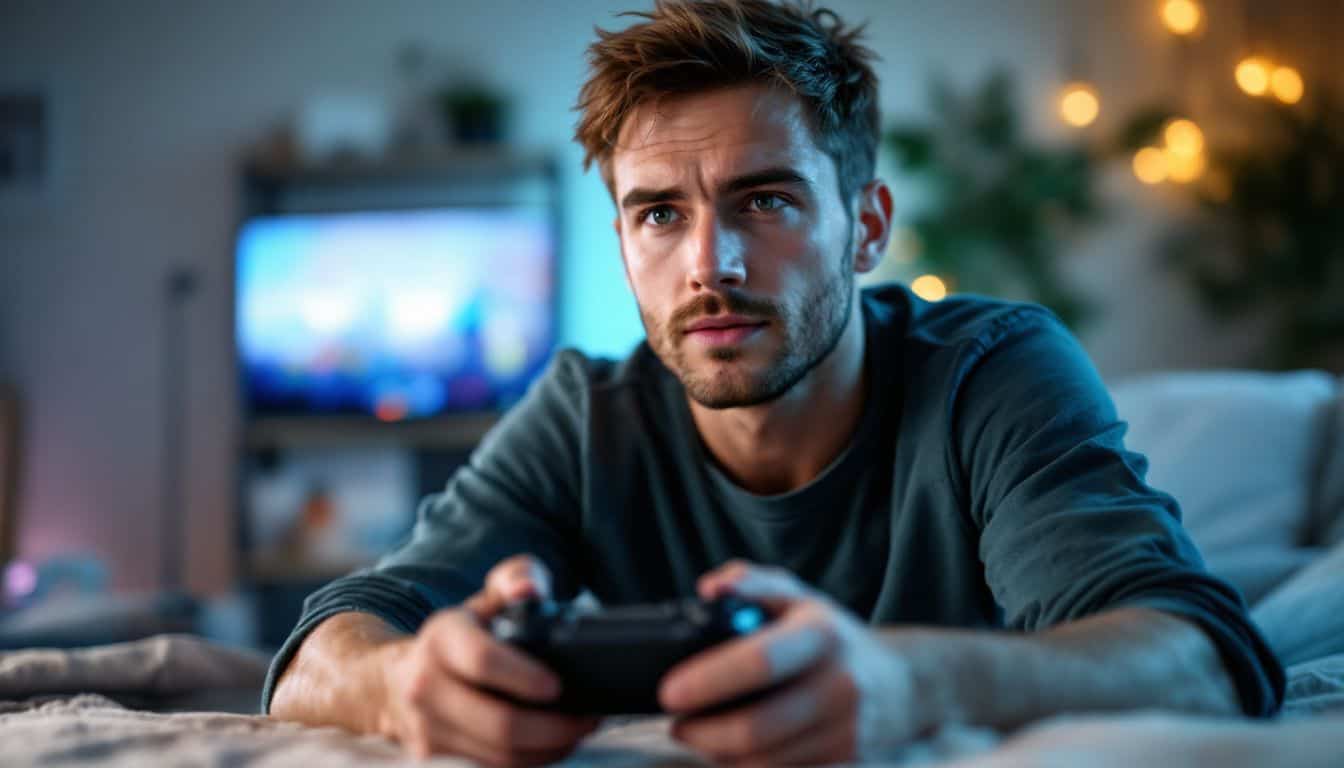
Gaming does more than just train your brain – it works your body too! Research shows that gamers score higher on physical tests than non-gamers, from quick finger movements to full-body reactions.
Better hand-eye coordination
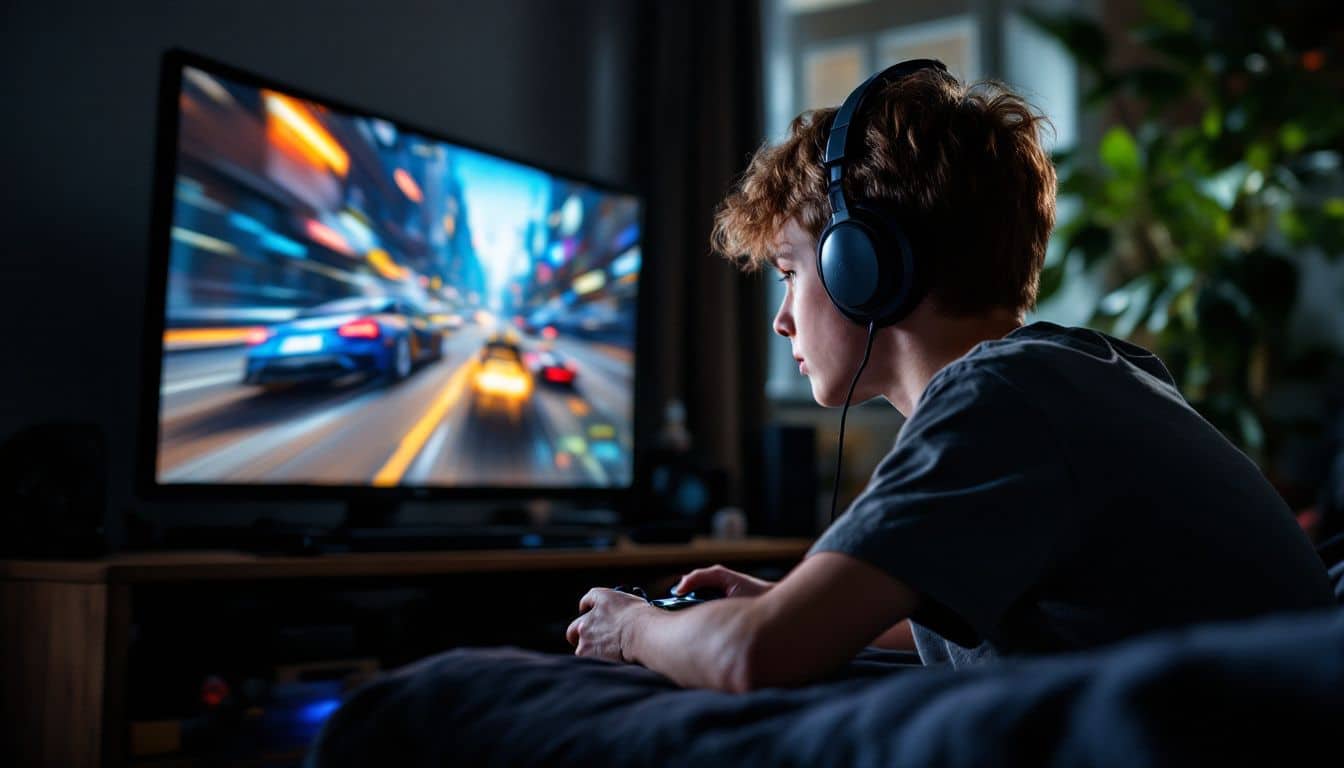
Playing video games sharpens your hand-eye coordination like nothing else. Your brain learns to match what you see on screen with quick finger movements on the controller. Medical research proves this point: surgeons who play games make 37% fewer mistakes during operations.
I noticed this benefit myself after years of gaming – my reflexes got faster, and I became better at catching falling objects in real life.
Your brain creates stronger paths between your visual system and motor skills through regular gaming sessions. Think of it like leveling up a character, except you’re boosting your real-life stats.
Video games are the new training ground for surgical precision. – Dr. James Rosser, Surgeon and Gaming Researcher
Motion-based games and fitness games push these benefits even further by making you move your whole body in response to on-screen action. The brain activity during these gaming sessions lights up like a Christmas tree on functional MRI scans, showing just how much your coordination improves.
Enhanced visuomotor skills
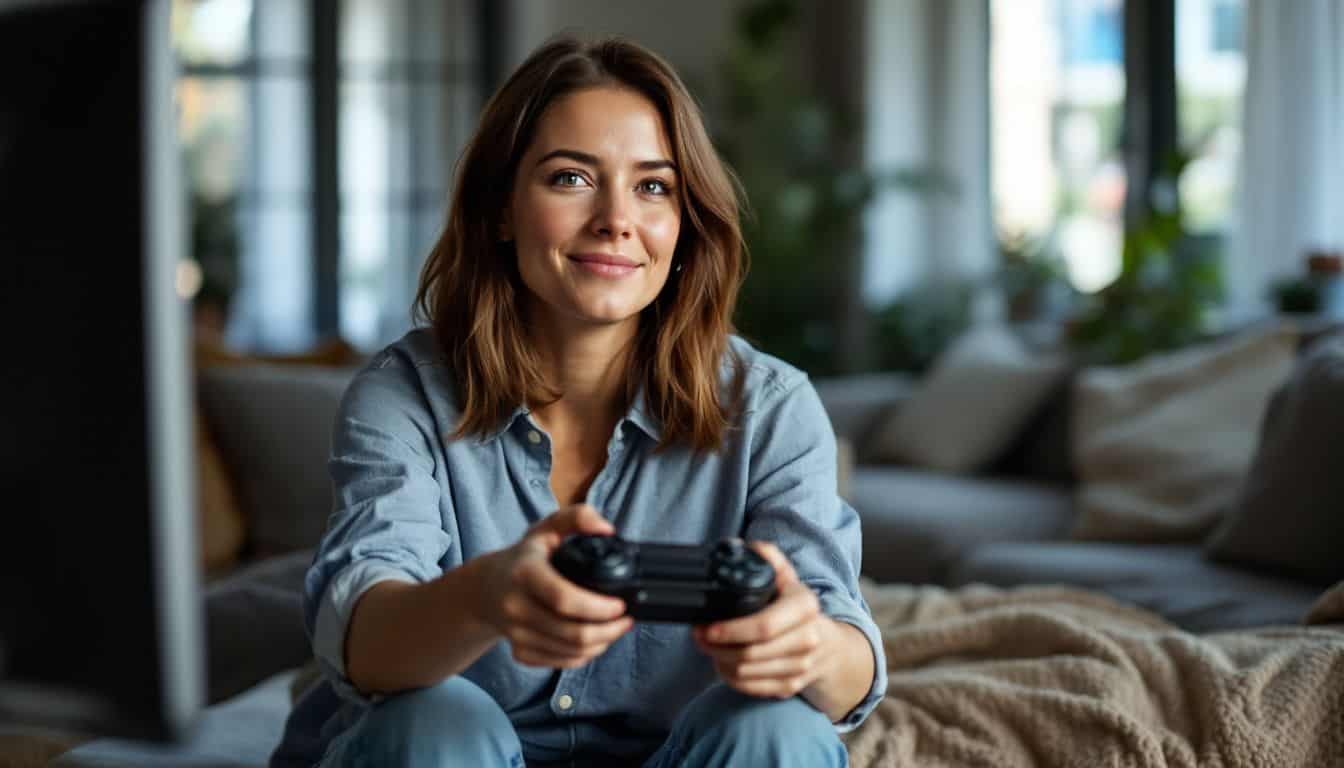
Video games boost your brain’s ability to process what you see and how you move. Action-adventure games train your brain to react faster to visual signals. I noticed this improvement myself after spending hours mastering fast-paced games like Ring Fit Adventure.
The games push your brain to make split-second choices while moving your body in response to on-screen action.
Your brain’s gray matter grows stronger through regular gaming sessions. This growth helps you control your emotions better and connects different parts of your brain more effectively.
Science backs this up – studies show that gamers process visual information 20% faster than non-gamers. So next time someone says gaming isn’t a waste of time, you can tell them it’s actually making your brain stronger.
The best part? You’re leveling up your real-life skills while having fun with your favorite games.
Increased physical activity through motion-based games
 Motion-based games have changed the way we stay active. Games like Ring Fit Adventure mix fun with fitness, making players move their bodies to progress through levels. These games turn living rooms into mini gyms, helping gamers break free from a sedentary lifestyle.
Motion-based games have changed the way we stay active. Games like Ring Fit Adventure mix fun with fitness, making players move their bodies to progress through levels. These games turn living rooms into mini gyms, helping gamers break free from a sedentary lifestyle.
Tech-smart health tools now team up with gaming systems to boost physical activity. Fitness trackers count steps while playing, and gaming apps track movement goals. Pro esports teams now mix regular exercise into their training plans.
This smart combo helps players stay healthy while enjoying their favorite games. The mix of gaming and movement creates a perfect balance for both fun and fitness.
Emotional and Mental Health Benefits
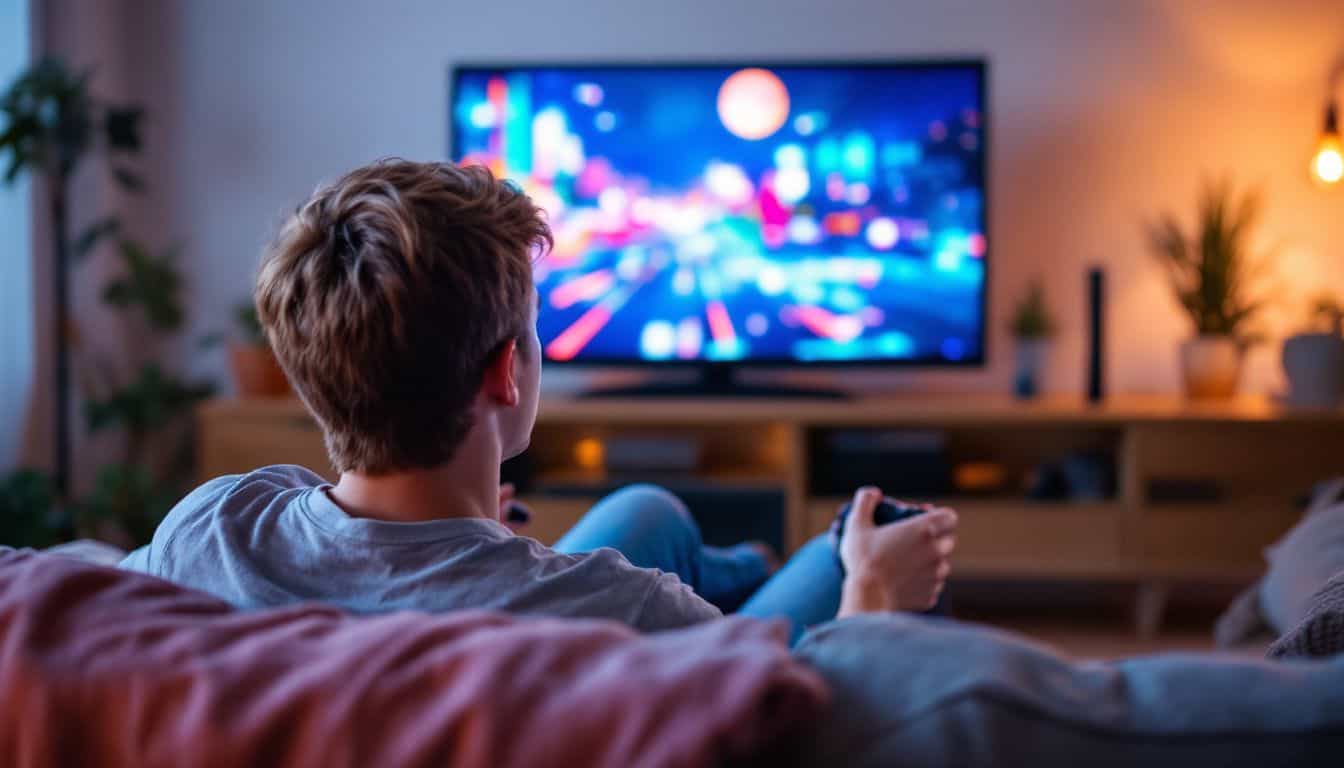
Gaming acts as a mental health booster by lowering stress and anxiety through fun challenges and virtual achievements – want to learn more about how games can make you happier and healthier?
Reduced stress levels
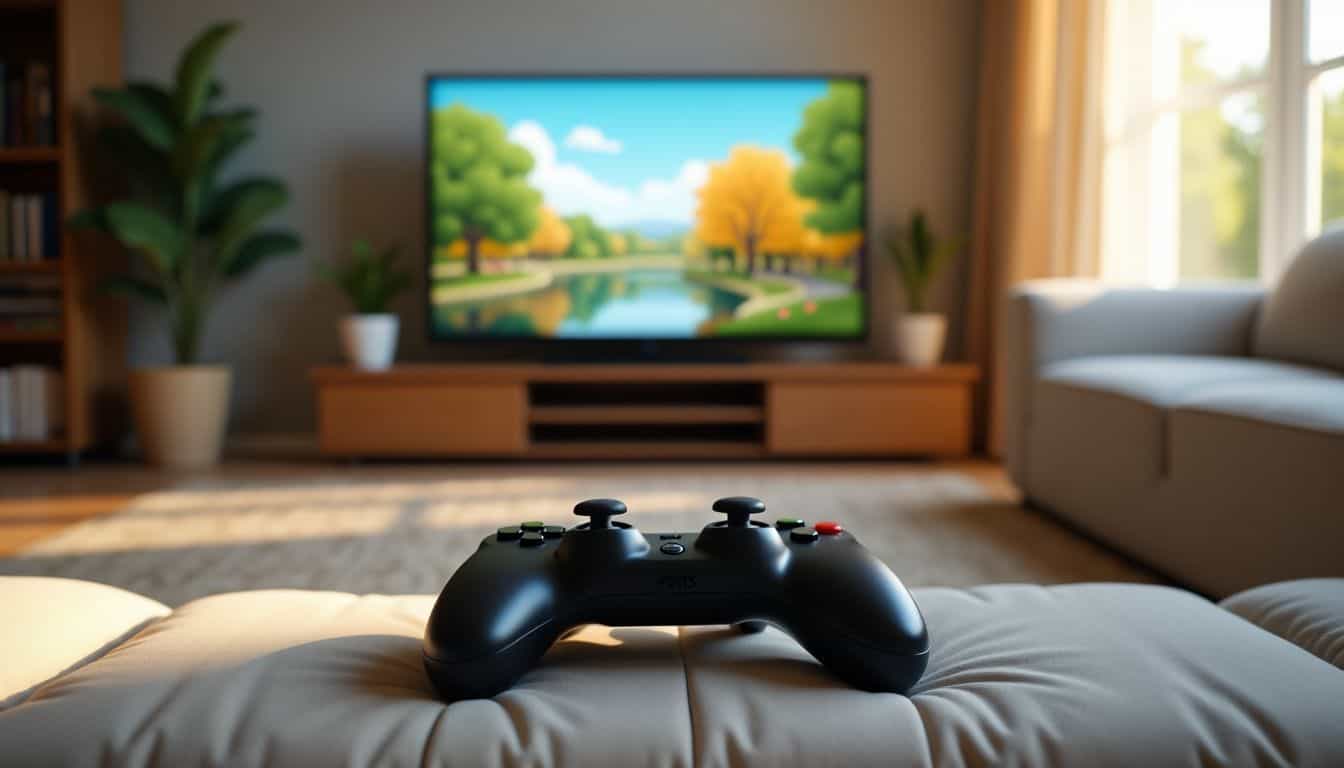
Playing video games melts away daily stress like ice cream on a hot day. Research shows puzzle games help players feel more relaxed and less anxious. I noticed this myself while playing Tetris after tough work days – the falling blocks and simple controls put my mind at ease.
The mental health benefits shine through as games create positive emotions, especially that awesome feeling of pride after beating a hard level.
Your brain releases feel-good chemicals during gaming sessions, which fights off tension naturally. Many players report lower stress levels after just 30 minutes with their favorite games.
The accessible interfaces in modern games make it easy to jump in and find your calm zone. Simple games work great as quick mental breaks to reset your mind and mood. The positive effects work better than many standard stress-busting activities.
Improved mood and mental well-being
Video games boost your brain’s happy chemicals. Research proves that gaming is a useful hobby that creates positive feelings and better moods.
I noticed this myself during tough days at work – a quick gaming session helps me feel lighter and more relaxed. The science backs this up: games trigger dopamine release, which makes us feel good and motivated.
Games are not just entertainment – they’re digital mood medicine for the modern mind.
Your mental health gets a power-up through gaming’s emotional benefits. The brain develops new ways to handle stress while you tackle in-game challenges. Therapeutic games offer a fresh take on traditional mental health care.
Many players find comfort in cooperative gaming, which builds social connections and fights loneliness. These social bonds through gaming create lasting positive effects on mental well-being.
The screen time spent gaming can actually improve your emotional resilience and coping skills.
Development of coping mechanisms
Gaming helps people deal with tough times in life. Players learn to bounce back from failures through repeated attempts at challenging game levels. This mirrors real-life situations and builds mental toughness.
Studies show that commercial video games help reduce depression and anxiety symptoms by giving players a sense of control.
Games offer a safe space to practice emotional control and stress management. Players face virtual challenges without real-world risks. They learn to stay calm under pressure, think clearly during tough spots, and keep going after setbacks.
The brain development that happens during gaming creates new ways to handle daily stress. This makes players better at dealing with real-world problems.
Social Benefits of Gaming
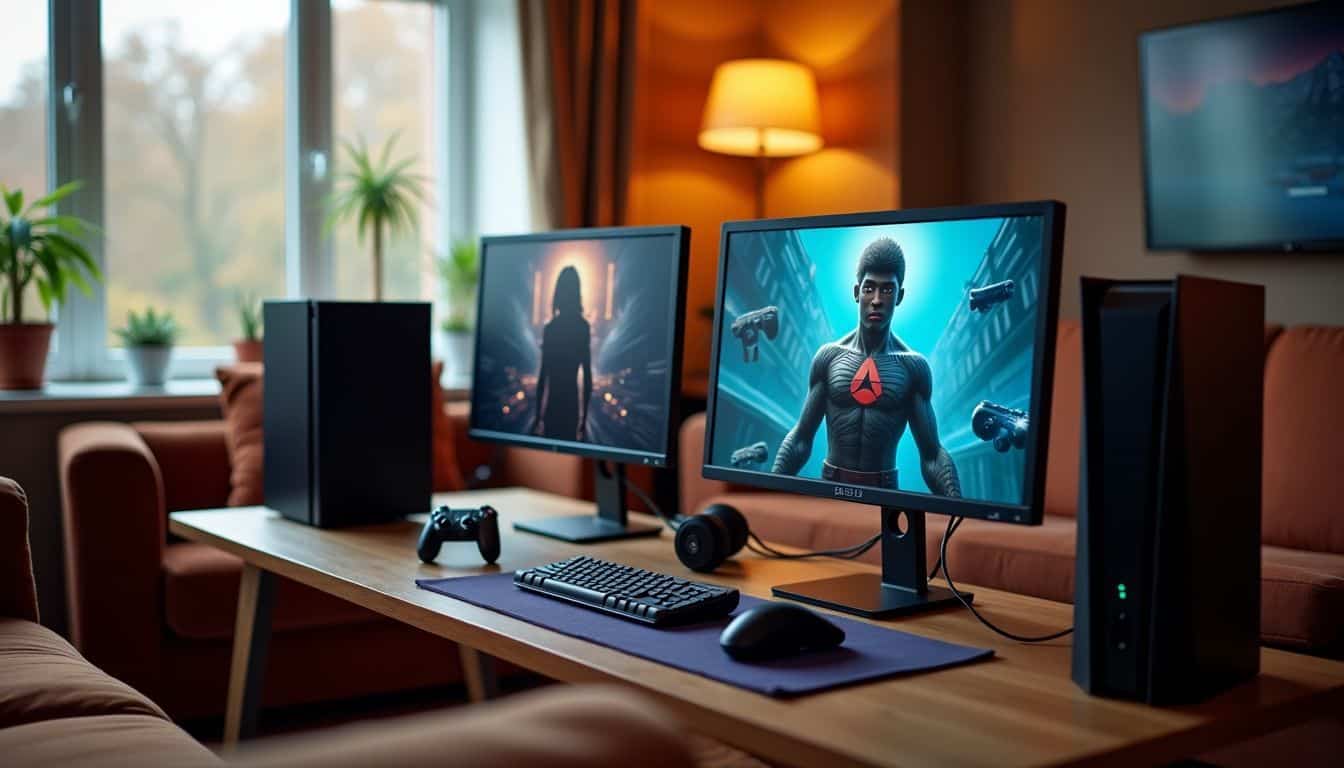
Gaming breaks down social walls and connects people across the globe through shared virtual adventures. Players team up to raid dungeons in World of Warcraft or build massive cities in Minecraft, creating lasting friendships that often move beyond the screen.
Opportunities for socializing and building connections
Online games create real friendships that matter. Players build deep bonds through shared quests and team challenges in virtual worlds. Studies show these digital connections fight loneliness just like face-to-face friendships.
Popular titles like Minecraft and Animal Crossing bring people together across distances, letting them chat and play in safe social spaces.
Virtual friendships are as meaningful as real-world connections – Dr. Sarah Miller, Social Psychology Research
Social networks grow stronger through multiplayer games. Players team up with others who share their interests and goals. Research links active gaming to better self-esteem and social skills.
The brain releases feel-good chemicals during positive online interactions, making these friendships feel rewarding and real. These bonds often extend beyond the screen into lasting relationships.
Teamwork and collaboration skills
Gaming builds strong teamwork muscles through multiplayer challenges. Players must work together to win matches, complete missions, and achieve shared goals. Many games push teams to split tasks, share resources, and support each other under pressure.
This creates real bonds between players who might live oceans apart. The social networking aspects of gaming platforms help players form lasting friendships while mastering group tactics.
Modern video games teach vital team skills that matter in real life. Players learn to give clear instructions, listen well, and adapt their plans on the fly. Games like team-based shooters and MMORPGs reward groups who communicate well and work as one unit.
Studies show gaming communities boost social ties and help players feel more connected. The brain development that happens during team gaming carries over into school, work, and daily life.
These skills make gamers better at working with others in any setting.
Cross-cultural interactions and global friendships
Online games break down borders and connect players from different cultures. Players team up with folks from Japan, Brazil, or Germany in massive multiplayer games. These global connections create real friendships through shared missions and goals.
Social media services make it easy to stay in touch outside of games too.
Gaming builds bridges across languages and time zones through shared virtual worlds. Players learn about different customs and ways of life from their global teammates. Many gamers pick up new languages and cultural insights while playing together.
The social networking sites linked to gaming platforms help these cross-cultural bonds grow stronger over time. These global gaming friendships often lead to real-life meetups at gaming events or conventions.
Educational and Career Advantages

Gaming sharpens real-world skills that many employers want. Modern video games teach coding, project management, and creative thinking that translate into high-paying tech jobs.
Learning through educational games
Educational games make learning fun and stick in your brain better. I played math games like DragonBox in school, which taught algebra through colorful puzzles and dragons. These games turned boring formulas into exciting challenges.
Research shows video games boost visual memory and help students grasp complex topics faster. The National Institutes of Health found that students who use educational games score 12% higher on tests than those who don’t.
Brain-training games pack serious learning power into bite-sized digital lessons. My niece learned basic coding through Scratch Jr, creating simple animations while building problem-solving skills.
Studies from ResearchGate prove that educational games improve focus and creativity in students of all ages. The mix of fun challenges and instant feedback helps kids master new skills without feeling stressed about making mistakes.
Skill development for professional roles
Gaming builds real-world job skills that many employers value today. Players who master complex games often excel at project management, resource allocation, and quick problem-solving.
These skills match what top companies need in fields like IT, data analysis, and team leadership. Many gamers develop strong multitasking abilities through managing in-game resources, coordinating with teammates, and tracking multiple objectives at once.
Professional success often stems from skills first learned in gaming environments. Strategic games teach critical thinking and risk assessment – crucial talents for business decisions.
Multiplayer games boost leadership qualities through raid planning and team coordination. Major companies like Google and Facebook now recognize gaming experience as valuable background for certain positions.
The fast-paced nature of gaming creates professionals who adapt quickly to new challenges and excel under pressure.
Enhanced adaptability and multitasking
Video games boost your brain’s ability to handle many tasks at once. Players must track multiple elements on screen, manage resources, and react to sudden changes – just like real-world situations.
This trains your brain to switch between tasks faster and adapt to new challenges. Studies show gamers process information 12% faster than non-gamers, making them better at juggling work demands.
Your brain gets stronger through regular gaming sessions, similar to how muscles grow with exercise. Fast-paced games force quick decisions while managing different goals. This mental workout improves focus and helps you stay cool under pressure.
The skills carry over to jobs that need quick thinking and problem-solving. Many tech companies now value gaming experience because it shows someone can learn and adapt fast.
People Also Ask
How do video games help brain development and mental health?
Video games boost cognitive functions and long-term memory. They help fight depression symptoms and can even slow down Alzheimer’s. Your brain gets a workout while having fun!
Are violent video games bad for teens and children?
Research from the National Institutes of Health shows that gaming, even with action content, can improve attention spans. Parents should follow screen time guidelines and check Entertainment Software Rating Board (ESRB) ratings.
How can games like Ring Fit Adventure improve physical health?
Games that get you moving are great workouts! They boost hand-eye coordination and help fight mental health problems. Plus, they’re more fun than regular exercise.
Do games help with ADHD?
Studies show video games can help people with attention-deficit/hyperactivity disorder (ADHD) focus better. The quick actions and rewards in games train the brain to stay on task.
Is gaming good for social connections?
Through social networking services like YouTube and Instagram, gamers build friendships. Online forums and multiplayer games help people connect, especially in early adulthood.
What privacy concerns should gamers know about?
Watch out for third-party cookies and web beacons. Use strong privacy settings, follow data protection rules, and be careful with personal data. The Children’s Online Privacy Protection Act (COPPA) helps protect young gamers.
References
https://health.clevelandclinic.org/are-video-games-good-for-you
https://pmc.ncbi.nlm.nih.gov/articles/PMC6826942/
https://www.mentalfloss.com/article/65008/15-surprising-benefits-playing-video-games
https://pmc.ncbi.nlm.nih.gov/articles/PMC8481377/
https://theweek.com/articles/466852/7-health-benefits-playing-video-games
https://www.apa.org/pubs/journals/releases/amp-a0034857.pdf
https://pmc.ncbi.nlm.nih.gov/articles/PMC6524699/
https://www.webmd.com/mental-health/mental-health-benefits-of-video-games (2024-02-20)
https://builtin.com/articles/online-gaming-social-benefits (2024-08-29)
https://www.sciencedirect.com/science/article/pii/S0747563223002029
https://www.researchgate.net/publication/284491180_The_educational_benefits_of_videogames (2024-10-22)
https://hbr.org/2023/03/your-gaming-skills-can-help-you-shape-your-career
